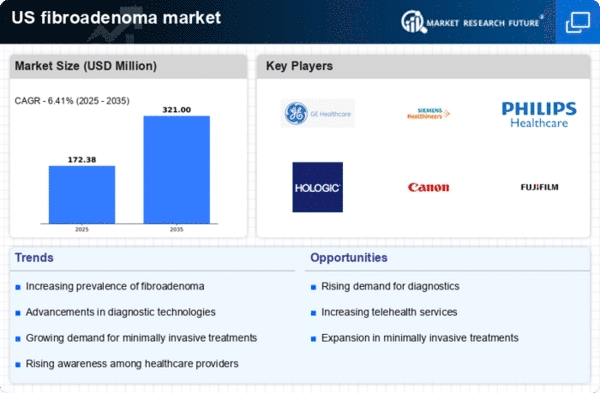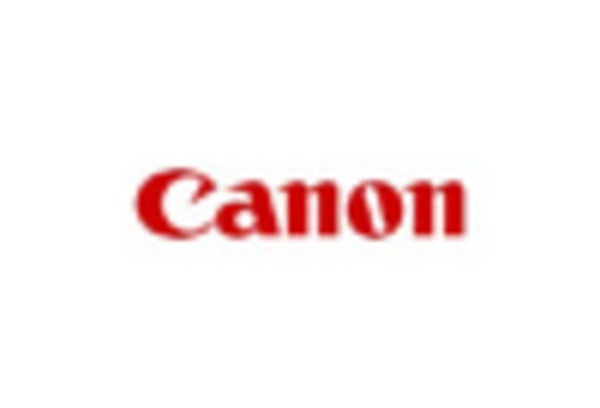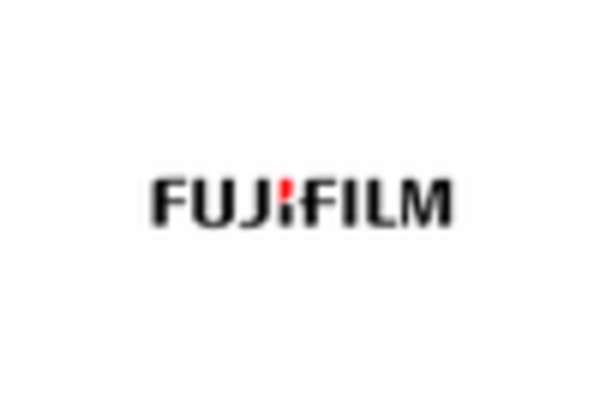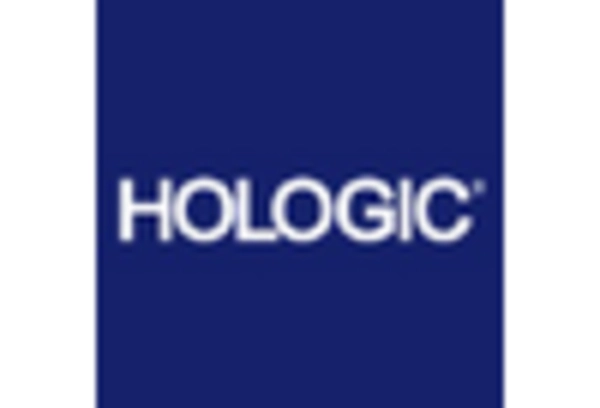Rising Healthcare Expenditure
Rising healthcare expenditure in the US is a crucial driver for the fibroadenoma market. With healthcare spending projected to reach approximately $4.1 trillion by 2025, there is a growing investment in medical technologies and treatment options for various conditions, including fibroadenomas. Increased funding for research and development in breast health is likely to lead to innovative treatment modalities, enhancing patient care. Moreover, as insurance coverage expands and more women gain access to healthcare services, the demand for fibroadenoma-related treatments is expected to rise. This trend indicates a positive outlook for the fibroadenoma market, as healthcare providers strive to offer comprehensive solutions for patients.
Increasing Incidence of Fibroadenoma Cases
The fibroadenoma market is experiencing growth due to the rising incidence of fibroadenoma cases among women in the US. Recent data indicates that approximately 10-15% of women aged 15-30 are diagnosed with this benign breast tumor. This increase in diagnosis is likely attributed to enhanced screening practices and greater awareness among healthcare providers. As more women seek medical attention for breast health, the demand for diagnostic and treatment options in the fibroadenoma market is expected to rise. Furthermore, the growing population of women in the reproductive age group may contribute to a higher prevalence of fibroadenomas, thereby driving market growth. The fibroadenoma market is poised to expand as healthcare systems adapt to meet the needs of this demographic.
Growing Focus on Women's Health Initiatives
The fibroadenoma market is benefiting from a growing focus on women's health initiatives across the US. Organizations and healthcare providers are increasingly prioritizing women's health issues, leading to enhanced awareness and education about conditions like fibroadenomas. Campaigns aimed at promoting breast health and regular screenings are likely to encourage women to seek medical advice, thereby increasing the number of diagnoses. This heightened awareness may also lead to more funding for research and treatment options, further propelling the fibroadenoma market. As societal attitudes shift towards prioritizing women's health, the market is expected to see sustained growth in the coming years.
Technological Advancements in Diagnostic Imaging
Technological advancements in diagnostic imaging are significantly impacting the fibroadenoma market. Innovations such as 3D mammography and ultrasound imaging have improved the accuracy of fibroadenoma detection, allowing for earlier diagnosis and better patient outcomes. The adoption of these advanced imaging techniques is likely to increase, as they provide clearer images and reduce the need for invasive procedures. In the US, the market for diagnostic imaging is projected to grow at a CAGR of around 5% over the next few years. This growth is expected to enhance the fibroadenoma market by facilitating timely interventions and increasing patient confidence in seeking medical care. As imaging technology continues to evolve, it may lead to more effective management strategies for fibroadenomas.
Increased Availability of Minimally Invasive Treatment Options
The fibroadenoma market is witnessing a shift towards minimally invasive treatment options, which are becoming increasingly available to patients. Techniques such as cryoablation and radiofrequency ablation offer effective alternatives to traditional surgical methods, reducing recovery times and minimizing complications. The growing preference for these less invasive procedures is likely to drive demand within the fibroadenoma market, as patients seek options that align with their desire for quicker recovery and less discomfort. Additionally, advancements in these technologies are expected to enhance their efficacy, further encouraging adoption. As healthcare providers expand their offerings to include these innovative treatments, the fibroadenoma market is poised for growth.
















